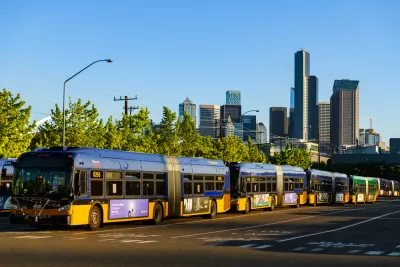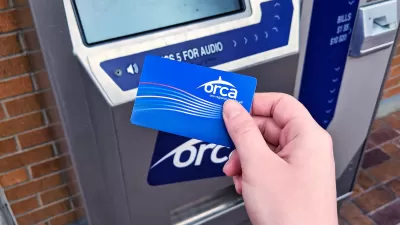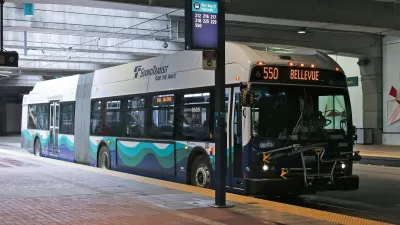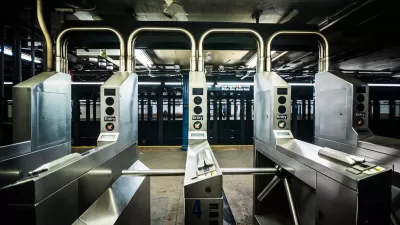After a COVID-era move to eliminate fare inspections on city buses, King County Metro is reinstating checks for fare evasion.

King County Metro announced it will resume fare enforcement on March 31 after a pause of nearly five years, reports Nicholas Deshais for The Seattle Times. “The change has less to do with safety and revenue, and more to do with riders’ perceptions of fairness, according to Metro.” Inspectors will begin boarding buses to ask for proof of payment on March 31, and fare evaders will face fines after May 31.
The agency estimates that roughly 34 percent of riders don’t pay their fare. Violators will get two written warning, then could face tickets of up to $40. People will also have the option to load the $20 onto an Orca transit card, do two hours of community service, or enroll in a reduced fare program.
Fares were suspended under the Safety, Security and Fare Enforcement initiative in June 2020, then reinstated in December of that year. However, King County Metro pledged not to resume enforcement “until the agency could figure out a way to do it fairly.” The new approach eliminates the potential to funnel people into the criminal justice system (under old regulations, a third fare violation resulted in a misdemeanor charge).
FULL STORY: Metro to resume bus fare inspections: What to expect

Alabama: Trump Terminates Settlements for Black Communities Harmed By Raw Sewage
Trump deemed the landmark civil rights agreement “illegal DEI and environmental justice policy.”

Planetizen Federal Action Tracker
A weekly monitor of how Trump’s orders and actions are impacting planners and planning in America.

The 120 Year Old Tiny Home Villages That Sheltered San Francisco’s Earthquake Refugees
More than a century ago, San Francisco mobilized to house thousands of residents displaced by the 1906 earthquake. Could their strategy offer a model for the present?

BLM To Rescind Public Lands Rule
The change will downgrade conservation, once again putting federal land at risk for mining and other extractive uses.

Indy Neighborhood Group Builds Temporary Multi-Use Path
Community members, aided in part by funding from the city, repurposed a vehicle lane to create a protected bike and pedestrian path for the summer season.

Congestion Pricing Drops Holland Tunnel Delays by 65 Percent
New York City’s contentious tolling program has yielded improved traffic and roughly $100 million in revenue for the MTA.
Urban Design for Planners 1: Software Tools
This six-course series explores essential urban design concepts using open source software and equips planners with the tools they need to participate fully in the urban design process.
Planning for Universal Design
Learn the tools for implementing Universal Design in planning regulations.
Clanton & Associates, Inc.
Jessamine County Fiscal Court
Institute for Housing and Urban Development Studies (IHS)
City of Grandview
Harvard GSD Executive Education
Toledo-Lucas County Plan Commissions
Salt Lake City
NYU Wagner Graduate School of Public Service





























